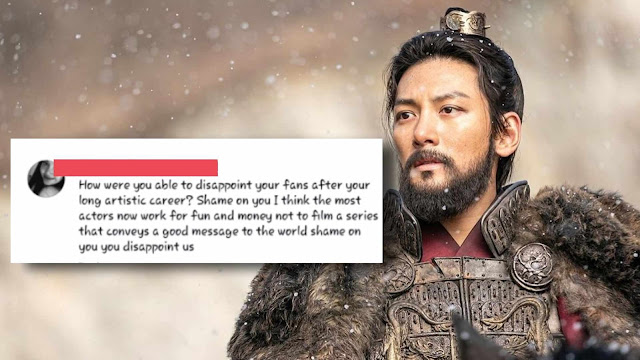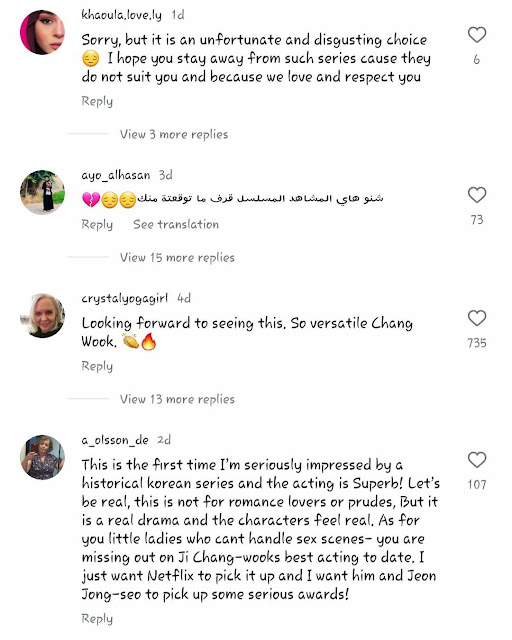"Queen Woo" Sparks Controversy: Fans Divided on Ji Chang Wook's Latest Historical Drama
Ji Chang Wook's latest historical drama, "Queen Woo," has ignited a firestorm of debate among fans, with his IG flooded with mixed reactions. While some praise the series for its compelling storyline and Ji Chang Wook's nuanced performance, others are deeply critical of its excessive violence and gratuitous intimate scenes.
The drama follows the story of Queen Woo, the first woman to become queen twice in Korean history, as she navigates the treacherous political landscape of Goguryeo. The series has been lauded for its intricate plot and captivating performances, particularly from actress Joen Jong Seo, who portrays Queen Woo.
However, the series has also drawn criticism for its graphic violence, particularly against women. Some viewers have pointed to a scene where the king's brother, Go Bal-ki, brutally murders his wife and several palace maids, as an example of the excessive violence that feels gratuitous and unnecessary.
The use of intimate scenes has also been a point of contention. While some viewers appreciate the series' exploration of complex relationships, others have argued that the scenes are often exploitative and detract from the overall narrative.
"Queen Woo" is a prime example of the evolving landscape of Korean dramas, where OTT platforms have led to a rise in more mature content. While this has opened up opportunities for more nuanced storytelling, it has also raised concerns about the portrayal of violence and sexuality.
Ji Chang Wook's Instagram has become a battleground for these differing opinions. Fans expressing their disappointment with the series' direction have clashed with those who continue to support the actor and his work. This division highlights the complex relationship between artists and their audiences, particularly in the age of social media, where opinions are readily shared and debated.
"Queen Woo" has sparked a conversation about the boundaries of storytelling and the responsibility of creators to portray sensitive themes. The series' reception demonstrates the diverse perspectives within the audience and the ongoing dialogue surrounding the evolution of Korean dramas.










.jpg)
Comments
Post a Comment